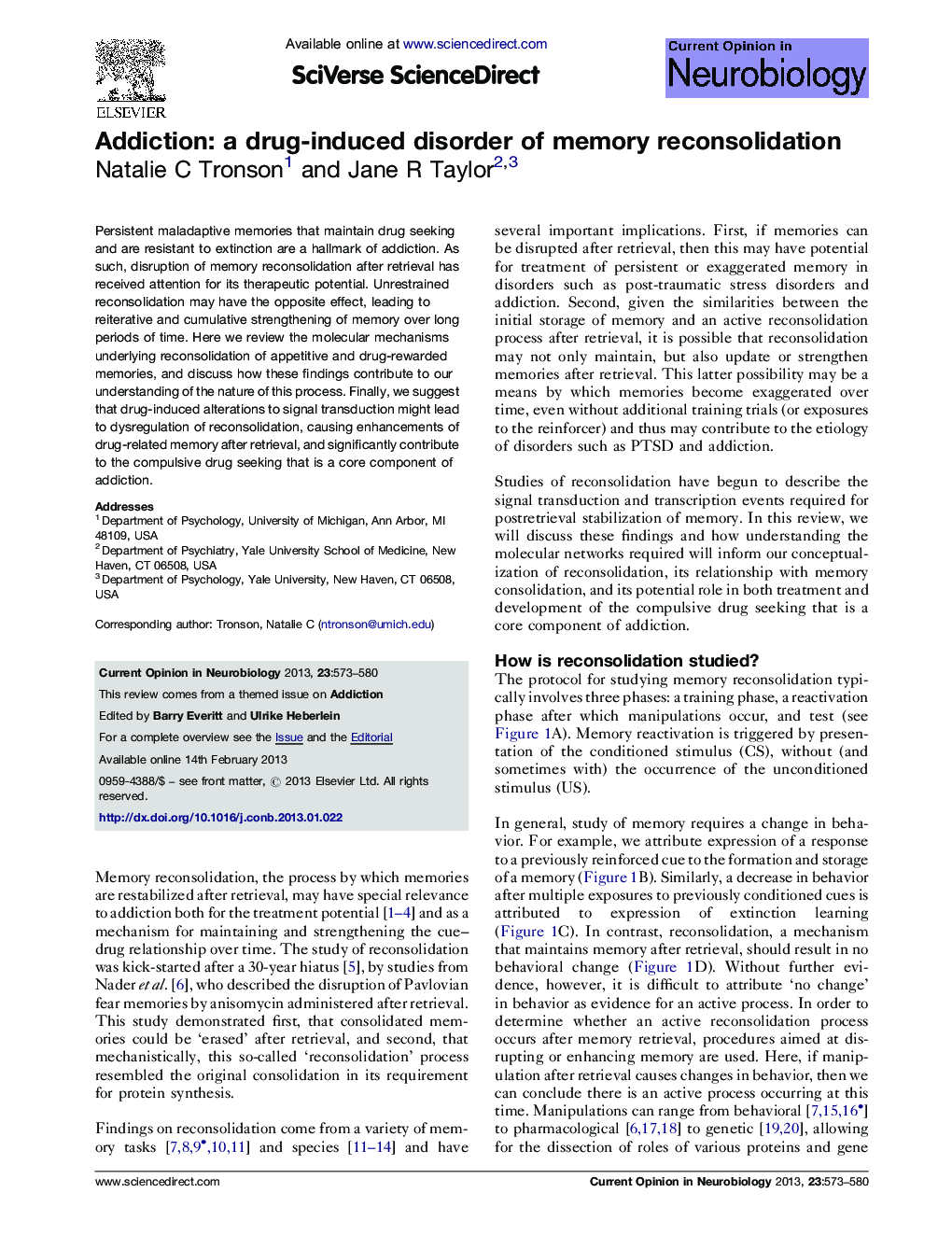| Article ID | Journal | Published Year | Pages | File Type |
|---|---|---|---|---|
| 6267108 | Current Opinion in Neurobiology | 2013 | 8 Pages |
Persistent maladaptive memories that maintain drug seeking and are resistant to extinction are a hallmark of addiction. As such, disruption of memory reconsolidation after retrieval has received attention for its therapeutic potential. Unrestrained reconsolidation may have the opposite effect, leading to reiterative and cumulative strengthening of memory over long periods of time. Here we review the molecular mechanisms underlying reconsolidation of appetitive and drug-rewarded memories, and discuss how these findings contribute to our understanding of the nature of this process. Finally, we suggest that drug-induced alterations to signal transduction might lead to dysregulation of reconsolidation, causing enhancements of drug-related memory after retrieval, and significantly contribute to the compulsive drug seeking that is a core component of addiction.
⺠Reconsolidation functions to maintain or update memories after retrieval. ⺠Reconsolidation may primarily mediate emotional or motivational aspects of memory. ⺠Mechanisms of reconsolidation significantly overlap with those of consolidation. ⺠Drug exposure alters signal transduction and may enhance reconsolidation. ⺠Dysregulated reconsolidation may thereby contribute to the etiology of addiction.
